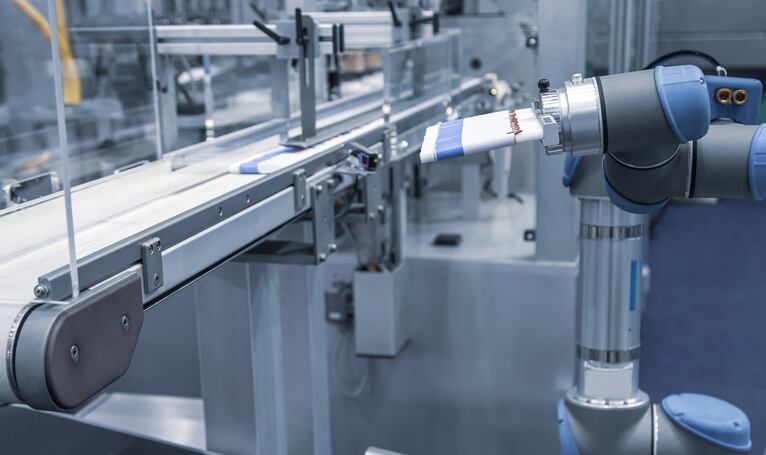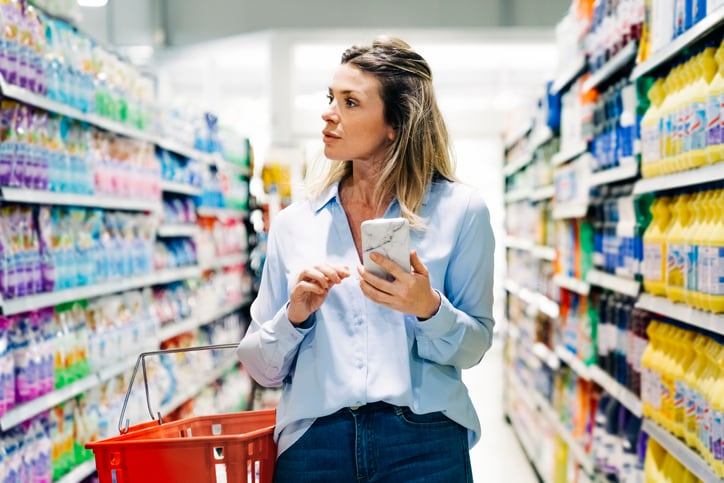Last week, executives from across different business units at Colgate-Palmolive participated in a ‘Digitization Successes’ webinar series on LinkedIn. Hosted by Chitra Nawbatt, an investor and growth advisor and host of The HLTH Daily Show, the event traced all aspects of Colgate-Palmolive’s business that had successfully implemented digital actions and spotlighted some of the company’s digital strategies of the future.
Opening the webinar, Nawbatt said: “Digital transformation is more than a buzzword. We’ll dive into how technology such as Artificial Intelligence and machine learning is transforming the way people work, the way businesses collaborate and transact, and the way people discover and buy – all through the unique lens of Colgate-Palmolive, whose Colgate brand is in more homes than any other.”
From smart factories built around Artificial Intelligence (AI) to clean data room partnerships for advanced analytics and cross-functional teamwork to improve digital shelf offerings, the personal care major had plenty going on.
Smart factories with ‘augmented humans’

Darren Havercamp, technical director for global supply chain at Colgate-Palmolive, said digitalisation was front-and-centre of the company’s ‘smart factory’ model focus – a “fully integrated and automated facility with a connected end-to-end supply chain” that merged augmented human and intelligent machine inputs to optimise processes.
“I would like to hone in on one of those phrases, and that is augmented humans. Augment is to make greater. We want to use technology to empower ourselves to overcome traditional human limitations,” Havercamp said. Full digitalisation, he said, could help first-day employees better accomplish work and enable better leveraging of mass data to get a bigger picture immediately.
This digitalisation, combined with intelligent machines and use of AI technologies in the factory, meant Colgate-Palmolive could run more efficient lines with highly optimised processes and ultimately make more informed decisions for better outcomes, he said. One example, he said, was using driverless vehicles to transport materials to free up employees for more “value-added activities”.
“It’s not one of these processes making it a smart factory, but all of these technologies working together, ultimately driving better efficiencies and providing a greater work experience for all of our employees,” Havercamp said.
Clean data rooms for ‘privacy and security protected’ analytics

Diana Schildhouse, chief analytics and insights officer at Colgate-Palmolive, said the company was also heavily invested in the future of data analytics via the development of clean rooms.
Clean rooms, Schildhouse said, were a secure environment where different types of data could be connected across multiple platforms and parties “whilst still ensuring the privacy and security of first-party data”. For Colgate-Palmolive, this meant connecting data on shopper baskets or loyalty card use, amongst other types of data, to deepen insight on overall consumer journeys and purchase patterns, ultimately informing improved innovation and marketing decisions, she said.
And today, there were two types of clean rooms: publisher- or retailer-led clean rooms and partner clean rooms that were run independently by brands with retail partners, she said. Colgate-Palmolive had developed one of the latter under its pet care Hill’s business last year, in partnership with a major retailer – a move that enabled “more autonomy” and customisation.
Looking ahead, she said Colgate-Palmolive wanted to take learnings from the Hill’s clean room and apply the concept across other business units and geographies.
“Clean rooms are still relatively new and emerging, but they’ve been gaining more traction as companies look for new ways to navigate the ‘cookie-less’ future and to harness the power of data through advanced analytics,” Schildhouse said. “…Given cookie deprecation and the growing importance of, and investment in, first-party data, we see these types of strategic data partnerships as important drivers of innovation and growth, for Colgate as well as for our partners.”
Why the digital shelf matters in today’s omnichannel environment

Brigitte King, chief digital officer at Colgate-Palmolive, said another important aspect of the company’s digital transformation was optimising the digital shelf – another extension of consumer touchpoints that had a “major impact” on brand visibility, availability and sales potential.
“The digital shelf matters in today’s omnichannel environment, as over half of sales are now digitally influenced at some point,” King said. “Consumer brands must balance not only winning physical store planograms but also mastering consumer-driven online algorithms.”
Whilst she said physical and virtual shopper journeys had “many parallels”, she said digital required many new skills and ways of working – all of which could be refined by focusing on four key performance indicators (KPIs): availability, retail search, content and ratings and reviews.
“Mastering our shelves, whether physical or digital, is the new pathway to growth for all of our brands, and it results in clear sales and share growth. Conquering this digital shelf also advances our purpose to reimagine a healthier future for all because we’re getting our essential health and hygiene products into the right hands at the right time and more effectively,” King said.
Internally, she said focus on the digital shelf was also a “great catalyst” to connect cross-functional teams because it required true teamwork.
“Phygital is the new normal state; it’s the combination of physical and digital and that’s how our consumers experience and engage today. They expect an omni, frictionless experience and the ability to navigate seamlessly between online and offline to meet their needs.”




